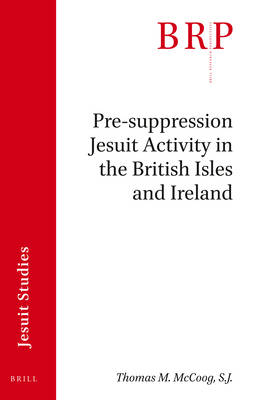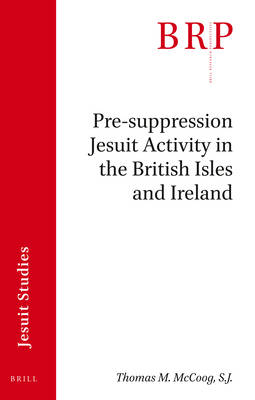
- Afhalen na 1 uur in een winkel met voorraad
- Gratis thuislevering in België vanaf € 30
- Ruim aanbod met 7 miljoen producten
- Afhalen na 1 uur in een winkel met voorraad
- Gratis thuislevering in België vanaf € 30
- Ruim aanbod met 7 miljoen producten
Pre-Suppression Jesuit Activity in the British Isles and Ireland
Brill's Research Perspectives in Jesuit Studies
Thomas M McCoog S J
€ 143,45
+ 286 punten
Omschrijving
The British Isles and Ireland tested the self-proclaimed adaptability and flexibility of the new Society of Jesus. A mission to Ireland highlighted the complexities and ended in failure in the early 1580s, not to be revived until 1598. The fabled Jesuit mission to England in 1580 conceived in wistful optimism was baptized with blood with the execution of Edmund Campion in 1581 and the consequent political manoeuveres of Robert Persons. The Scottish mission began in December 1581. The three missions remained distinct in the pre-suppression period despite an occasional proposal for integration. The English mission was the largest, the bloodiest, the most controversial, and the only one to progress to full provincial status. The government tried to suppress it; the Benedictines tried to complement it; the vicars-apostolic tried to control it; and foreign Jesuits tried to recognize it. Nonetheless, the English province forged a corporate identity that even withstood the suppression.
Specificaties
Betrokkenen
- Auteur(s):
- Uitgeverij:
Inhoud
- Aantal bladzijden:
- 122
- Taal:
- Engels
- Reeks:
Eigenschappen
- Productcode (EAN):
- 9789004394919
- Verschijningsdatum:
- 25/07/2019
- Uitvoering:
- Paperback
- Formaat:
- Trade paperback (VS)
- Afmetingen:
- 155 mm x 235 mm
- Gewicht:
- 208 g

Alleen bij Standaard Boekhandel
+ 286 punten op je klantenkaart van Standaard Boekhandel
Beoordelingen
We publiceren alleen reviews die voldoen aan de voorwaarden voor reviews. Bekijk onze voorwaarden voor reviews.










